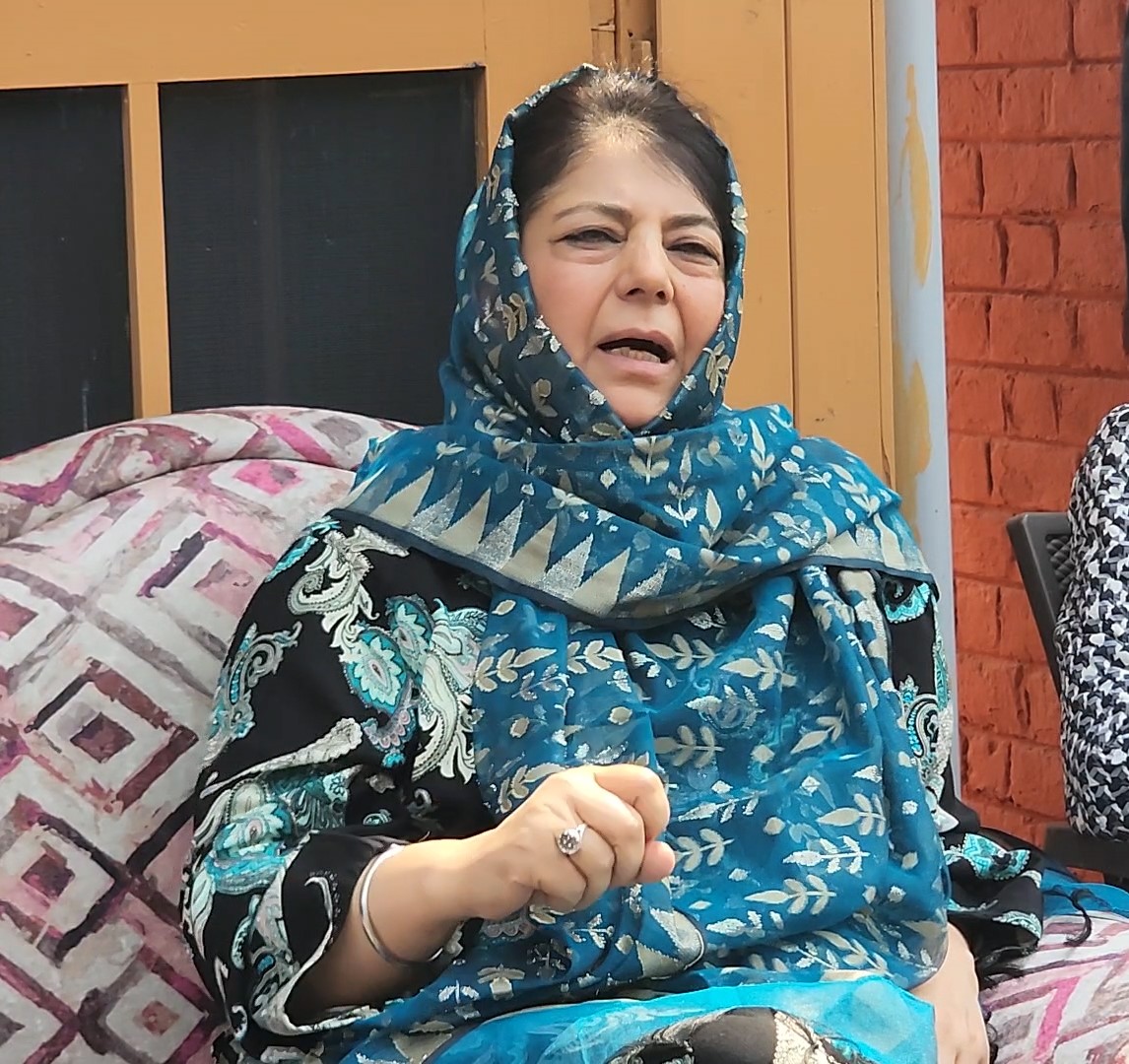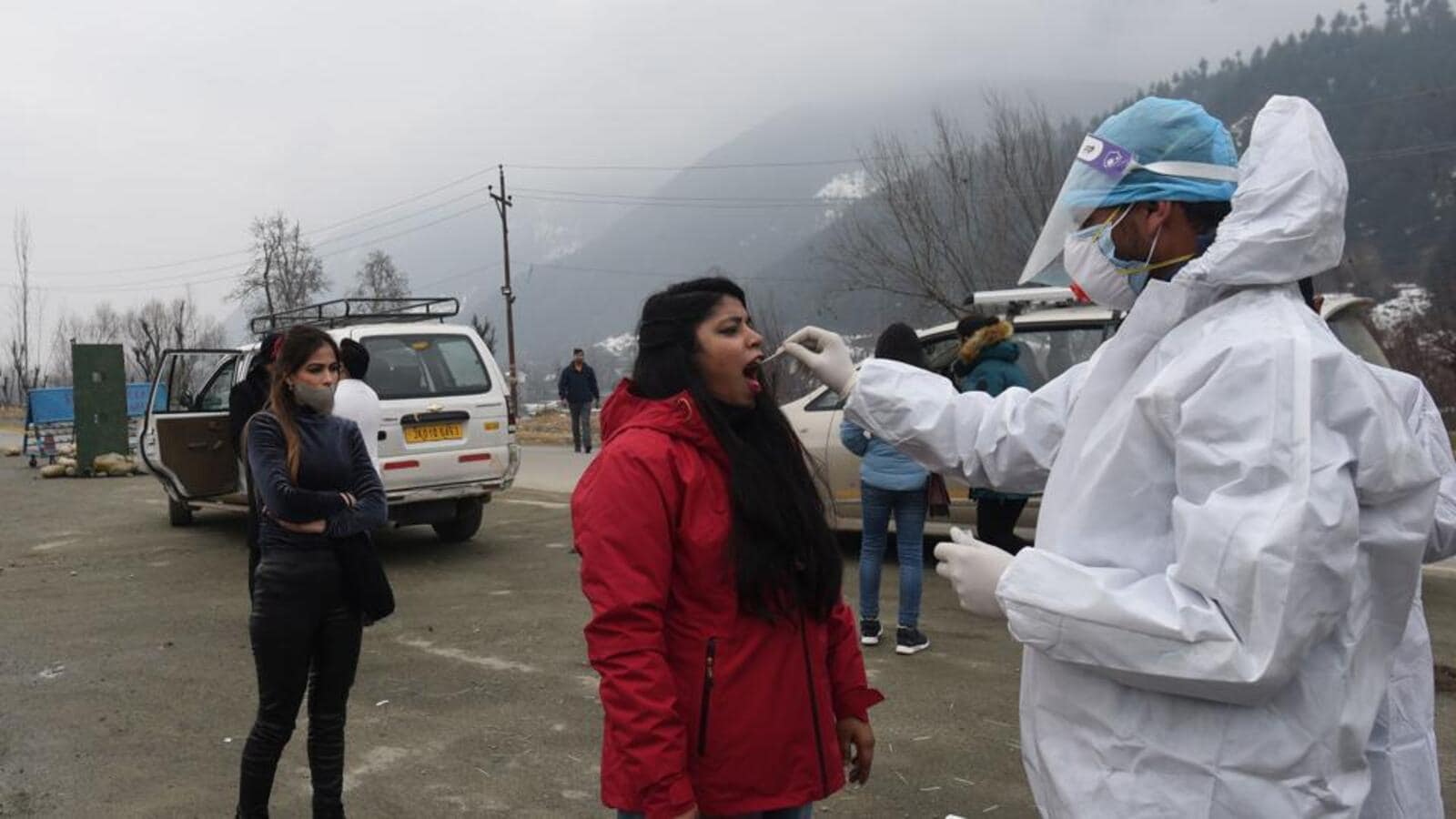Bridging Divides: Mehbooba Mufti Calls for Unity, Citing Himanshi Narwal’s Example
Srinagar 04 May 2025: In the charged aftermath of the Pahalgam terror attack, which tragically claimed the life of Lieutenant Vinay Narwal, a poignant call for communal harmony has emerged from his widow, Himanshi Narwal. Her appeal, urging the nation to refrain from targeting Muslims and Kashmiris, has resonated deeply, particularly with People’s Democratic Party (PDP) President Mehbooba Mufti. Mufti has publicly lauded Himanshi’s message, contrasting it sharply with remarks made by National Conference (NC) President Dr. Farooq Abdullah, creating a significant political discourse within the region.
Himanshi Narwal, who had married Lieutenant Narwal just a week before his untimely death, delivered a powerful message of peace and justice. In her statement, she explicitly stated, “We don’t want people going after Muslims and Kashmiris. We want peace and justice. People who have done wrong with him should be punished.” This appeal, delivered in the midst of profound personal grief, has been widely recognized for its maturity and restraint.
Mehbooba Mufti’s Criticism of Farooq Abdullah: A Political Divide
Mehbooba Mufti’s praise for Himanshi Narwal was coupled with a sharp critique of Dr. Farooq Abdullah. She specifically addressed Abdullah’s reported remarks to a section of the media, where he allegedly suggested that attacks like the one in Pahalgam could not occur without local support. Mufti characterized these remarks as “misleading” and “fatal,” particularly at a time when Kashmiri students and traders residing outside the valley are vulnerable to retaliatory actions.
The Vulnerability of Kashmiris Outside the Valley: A Key Concern
A central element of Mehbooba Mufti’s response is her concern for the safety and well-being of Kashmiri students and traders living outside Jammu and Kashmir. She underscored the heightened vulnerability of these individuals in the aftermath of the Pahalgam attack, fearing that they could become targets of retaliatory attacks fueled by misinformed or inflammatory rhetoric.
The Political Context: Navigating Kashmir’s Complex Narrative
The exchange between Mehbooba Mufti and Farooq Abdullah reveals the deep political divisions that persist in Jammu and Kashmir. It also underscores the challenges of navigating the complex narrative surrounding terrorism and communal relations in the region.
Mehbooba Mufti, as the leader of the PDP, has often positioned herself as a voice for the Kashmiri people, advocating for dialogue and reconciliation. Her emphasis on Himanshi Narwal’s message aligns with her broader political stance.
The Importance of Responsible Rhetoric: A Call for Unity
The debate sparked by Himanshi Narwal’s appeal and the contrasting remarks of Farooq Abdullah highlights the importance of responsible rhetoric in times of crisis. Mehbooba Mufti’s decision to amplify Himanshi’s message underscores the power of empathy and understanding in fostering peace and unity.
Her criticism of Abdullah’s remarks serves as a reminder of the potential consequences of inflammatory language, particularly in a region as sensitive as Jammu and Kashmir.
Ultimately, the situation underscores the need for leaders and public figures to exercise caution and promote messages of unity and understanding, especially in the wake of tragic events. The powerful and mature response of Himanshi Narwal serves as a powerful example of how to respond to tragedy.



